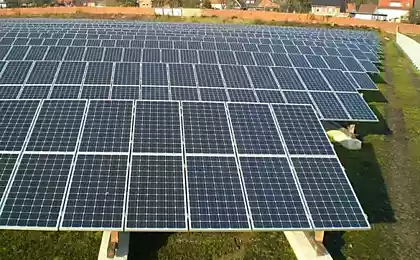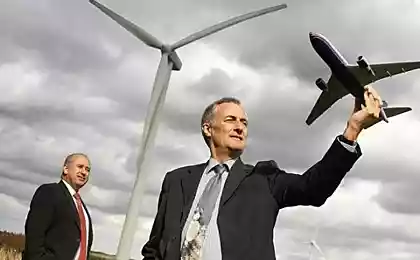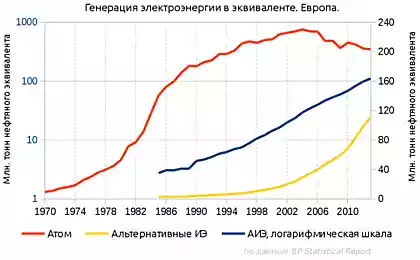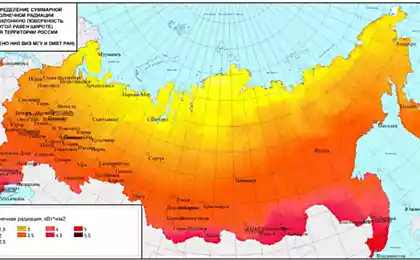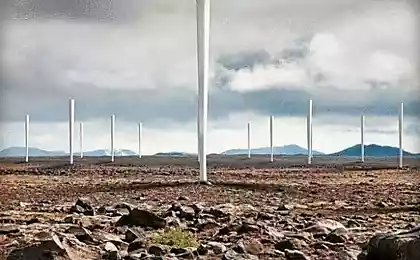578
Why alternative energy becomes uncontested
In late June, the International energy Agency (IEA) urged leading powers of the world have until 2040 to dramatically reduce harmful air emissions. First, according to experts, it is necessary to invest $2.3 trillion in creating new energy technologies and greater control of environmental pollution. And then spend another $2.5 trillion to the global transformation of energy. The scope, however!
Canada breaks in the future
Thanks, of course, for target designation, but in this case the revolution is itself, without state podstegivaniia and prodding, natural, way! Thus, recently, the International expert community REN-21 has published a report confirming that the era of fossil fuels will end sooner than expected. In 2015, the RES (renewable energy sources) accounted for almost a quarter of the world's electricity. Investment in the industry exceeded $ 300 billion, and the number of jobs in the industry — over 8 million.
Solar panels in Vancouver
C major, the note can not overshadow even the fact that in California burned the world's largest solar power plant. Happen. But (a specific example from close neighbors), speaking at the world clean-tech conference in Vancouver, Prime Minister Trudeau announced that his government will fully support "green" energy of Canada with the aim to achieve the following balance sources by 2050: wind 58% of total generation, i.e. production of energy, the sun at 22%, hydro 16%, the energy of the waves is 2% and geotermica – 2%.
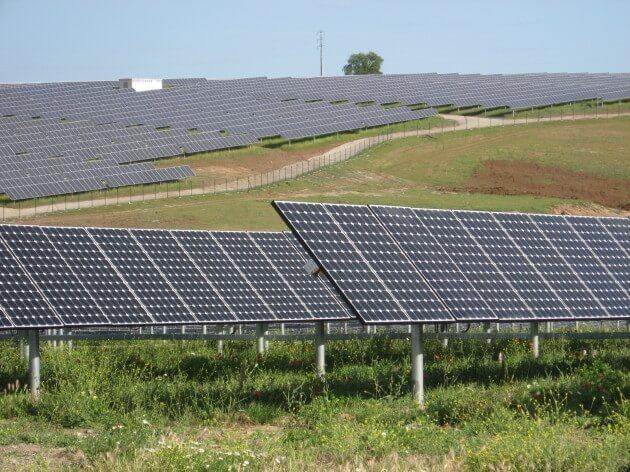
As you can see, no coal, no oil gas as fuel for thermal power plants or even nuclear energy space in the future no. But whether real plans? Yes, Canada is a world leader in developing clean energy, but mainly due to hydropower – 60% of the total electricity generation. On the second place among these sources, wind energy for 5%, and it is the cheapest. On the third biomass of 1.5%. Solar energy is lagging behind, which is understandable – the country is still North. And if the whole world in the last doubles the capacity every two years that is growing exponentially, mainly due to China, USA, Spain and other southern countries. Although second place is not so tropical Germany.
The more curious can solar power provide a fifth of the needs of Canada's energy? Does not provide the same plan Trudeau, in addition to abandonment of fossil sources, and the elimination of excess hydropower to return nature to its original appearance and to reconcile these figures with each other? I think not. So, experts anticipate a fivefold increase in consumption, but at the expense of renewable energy sources (RES) in order not to increase the emission of greenhouse gases is in full accord with the plans of the IEA.
A new day of victory
It is possible, judging by the experience of Germany. Symbolic – it is may 8, 2016, that is the day of Victory, it set a new record of generating "green" electricity. That day due to solar and wind power solar (SES), wind (windmills), hydro (HPP) and bioenergetical (BES) accounted for 87% of total consumption. And at 11 o'clock in the morning, their share reached 95%. Although this was favoured by special conditions (Sunday energy consumption is minimal), yet there is a great achievement!
Last year, the share of clean energy in Germany amounted to a third of total generation, she still grew. The country implements a plan Energiewende (energy transition), which wants to reduce greenhouse gas emissions by 80-95% by 2050. to increase the share of renewable energy to 60%. Along the way, the authorities intend to 2022 to get rid of nuclear power plants. 8 may was an important milestone on this path, but must be solved many technological problems and to find new methods of energy storage for cloudy and windless days.
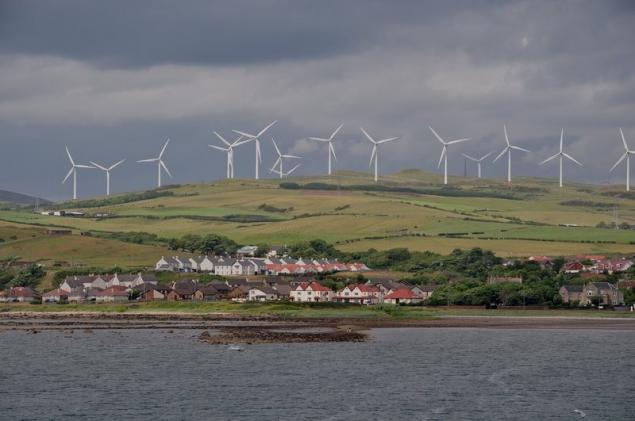
The most piquant result of the brilliant success became a financial incident: for a few hours the price went negative and producers had to pay consumers. And what will happen in the summer when the days are long, and the SES will come on full power? Moreover, such surges of overproduction of energy happen more often, and the pricing system has not kept pace with revolutionary changes. The fact that prices in Europe formed the market, i.e. wholesale customers are actively involved in the process. And if the goods are too many suppliers are starting to dump, and the prices sometimes go negative. The producers of "green" energy is still in positive territory at the expense of state subsidies.
The same problems in Denmark, leading to the production of wind energy. Its wind turbines already cover 40% of the total consumption, and in particularly windy days, Denmark produces almost one and a half times more than necessary! And not only in Europe happen pleasant to consumers incidents. In Chile, by April of this year, the electricity was free of 113 days in a row thanks to good weather, SES generate too much energy. In 2013 its production increased four times. And last year the energy was set free more than six months. However, for manufacturers work at a loss not pleasant, and they're outraged by the slowness of the government, delayed with the restructuring of pricing structures and energy infrastructure.
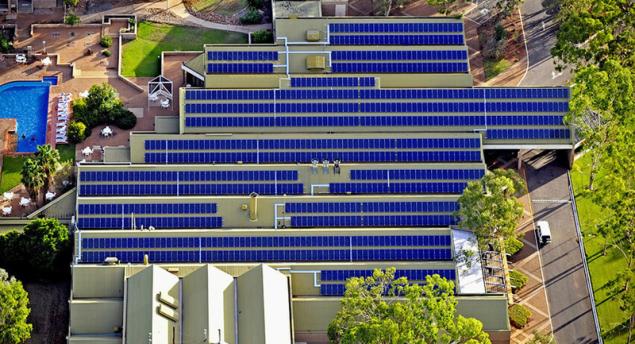
In General, renewable energy is developing very rapidly around the world, except Russia, Venezuela, North Korea and underdeveloped countries of Africa. So, last year Scotland has surpassed the government's plans, and "green" generation accounted for 57.7% of the capacity. Uruguay is planning in 10 years to 95% of the energy from environmental sources, without government subsidies or raising prices for consumers. While filled with oil Venezuela is suffering from a shortage of electricity, and therefore prohibited the work of washing machines and transferred civil servants on a two-day working week. Lower Austria, the largest state of Austria, in November 2015, announced that its needs are fully met with clean energy in Costa Rica is 99%.
But such rapid growth ahead of the price system, as well as the current energy infrastructure. They are too inert to quickly and adequately respond to jumps and falls in generation. And if gas power plants can quickly "put out", then nuclear and coal-fired power plants just will not shut down. So again, back to exemplary Germany: it is most interesting for the analysis because among the major economically and industrially developed countries are ahead of everyone on the share of renewable energy (despite the fact that hydropower in this proportion is small, which seriously complicates the task), and the first passes in practice theoretical models and strategies.
Until the imbalance is resolved through the transfer of energy through well-developed networks within the country and its exports and imports. But soon you will need the storage or shunting power, and Germany is already building a line to Norway, where excess energy can be stocked for PSP (pumped storage stations). Worked out and the creation of energy-intensive industries, including in periods of overproduction of energy and power systems designed for energy production not only to cover the average consumption, and much more. The surplus will go to the production of hydrogen, methane and liquid fuels. Market guaranteed. For example, Toyota already produces a model of the "Mirai" (future) for hydrogen fuel and expects by 2020 to bring its sales up to 30 thousand, followed by other companies, so with the advent of cheap energy, the production of hydrogen is becoming a very promising business. Well, methane is a valuable fuel and raw materials for the chemical industry.
Russia is lagging behind
In General, the captains of industry of Germany look to the future with great optimism. They believe that clean power will make a much greater contribution to the German economy than, say, American or Danish. US it is too big and having huge reserves of high quality hydrocarbons. On the other hand, the population of Germany and its industrial base is much larger than Denmark or Austria that allows to implement large-scale projects and drives the development of leading technology. However, these assertions is debatable – it is not necessary to dismiss the American scale and striving for innovation. The United States is already ranked 4th in the world in generating solar energy, according to the Ministry of energy, SES by 2050 will have 27% more than in Canada. Besides, at the end of last year, us lawmakers in exchange for the lifting of the embargo on oil exports included in the budget law the extension of tax breaks for producers of wind and solar energy.
Of course, life will adjust plans and, for example, in the near future there may be new sources, even if the same reactors of thermonuclear fusion, the development of which is planned to break, which flooded the world with cheap energy. But mindlessly relying on fossil hydrocarbons is clearly dangerous. First, sooner or later the moment will come when they will end. Second, overly hopeful they lag behind in development and eventually will not be ready for this moment. As is the case with Russia.
Arkady Dvorkovich, speaking at a business Breakfast Sberbank "Life after oil", which was held at the St. Petersburg economic forum, said the astonished guests that high rates of development of renewable energy lead to higher cost for consumers, for taxpayers ' money to cover losses from this expensive energy.
This is the level of competence of the Deputy Prime Minister in charge of energy. Citing the example of Germany with "the most expensive energy in Europe", he obviously had not heard about the new record, generating "green" electricity, established there on may 8, and that rates have gone negative, and the producers had to pay consumers. He doesn't know that wind energy is already the cheapest in the world. The price of solar energy has fallen by half in two years, and now it is cheaper than traditional energy sources without any subsidies.
"Russia in this sense has gone the other way, as producers of hydrocarbons, we're going very slowly, we do not want consumers to pay a very high price for renewable sources," — said Dvorkovich and signed either of incompetence or of demagogy. Because Russia does not go forward, she is obviously behind in the technology and burns up irreplaceable resources, robbing their descendants, and zagazhivaya planet.
P. S. And remember, only by changing their consumption — together we change the world! ©
Source: www.energosovet.ru/news.php?zag=1467958997
Canada breaks in the future
Thanks, of course, for target designation, but in this case the revolution is itself, without state podstegivaniia and prodding, natural, way! Thus, recently, the International expert community REN-21 has published a report confirming that the era of fossil fuels will end sooner than expected. In 2015, the RES (renewable energy sources) accounted for almost a quarter of the world's electricity. Investment in the industry exceeded $ 300 billion, and the number of jobs in the industry — over 8 million.
Solar panels in Vancouver
C major, the note can not overshadow even the fact that in California burned the world's largest solar power plant. Happen. But (a specific example from close neighbors), speaking at the world clean-tech conference in Vancouver, Prime Minister Trudeau announced that his government will fully support "green" energy of Canada with the aim to achieve the following balance sources by 2050: wind 58% of total generation, i.e. production of energy, the sun at 22%, hydro 16%, the energy of the waves is 2% and geotermica – 2%.

As you can see, no coal, no oil gas as fuel for thermal power plants or even nuclear energy space in the future no. But whether real plans? Yes, Canada is a world leader in developing clean energy, but mainly due to hydropower – 60% of the total electricity generation. On the second place among these sources, wind energy for 5%, and it is the cheapest. On the third biomass of 1.5%. Solar energy is lagging behind, which is understandable – the country is still North. And if the whole world in the last doubles the capacity every two years that is growing exponentially, mainly due to China, USA, Spain and other southern countries. Although second place is not so tropical Germany.
The more curious can solar power provide a fifth of the needs of Canada's energy? Does not provide the same plan Trudeau, in addition to abandonment of fossil sources, and the elimination of excess hydropower to return nature to its original appearance and to reconcile these figures with each other? I think not. So, experts anticipate a fivefold increase in consumption, but at the expense of renewable energy sources (RES) in order not to increase the emission of greenhouse gases is in full accord with the plans of the IEA.
A new day of victory
It is possible, judging by the experience of Germany. Symbolic – it is may 8, 2016, that is the day of Victory, it set a new record of generating "green" electricity. That day due to solar and wind power solar (SES), wind (windmills), hydro (HPP) and bioenergetical (BES) accounted for 87% of total consumption. And at 11 o'clock in the morning, their share reached 95%. Although this was favoured by special conditions (Sunday energy consumption is minimal), yet there is a great achievement!
Last year, the share of clean energy in Germany amounted to a third of total generation, she still grew. The country implements a plan Energiewende (energy transition), which wants to reduce greenhouse gas emissions by 80-95% by 2050. to increase the share of renewable energy to 60%. Along the way, the authorities intend to 2022 to get rid of nuclear power plants. 8 may was an important milestone on this path, but must be solved many technological problems and to find new methods of energy storage for cloudy and windless days.

The most piquant result of the brilliant success became a financial incident: for a few hours the price went negative and producers had to pay consumers. And what will happen in the summer when the days are long, and the SES will come on full power? Moreover, such surges of overproduction of energy happen more often, and the pricing system has not kept pace with revolutionary changes. The fact that prices in Europe formed the market, i.e. wholesale customers are actively involved in the process. And if the goods are too many suppliers are starting to dump, and the prices sometimes go negative. The producers of "green" energy is still in positive territory at the expense of state subsidies.
The same problems in Denmark, leading to the production of wind energy. Its wind turbines already cover 40% of the total consumption, and in particularly windy days, Denmark produces almost one and a half times more than necessary! And not only in Europe happen pleasant to consumers incidents. In Chile, by April of this year, the electricity was free of 113 days in a row thanks to good weather, SES generate too much energy. In 2013 its production increased four times. And last year the energy was set free more than six months. However, for manufacturers work at a loss not pleasant, and they're outraged by the slowness of the government, delayed with the restructuring of pricing structures and energy infrastructure.

In General, renewable energy is developing very rapidly around the world, except Russia, Venezuela, North Korea and underdeveloped countries of Africa. So, last year Scotland has surpassed the government's plans, and "green" generation accounted for 57.7% of the capacity. Uruguay is planning in 10 years to 95% of the energy from environmental sources, without government subsidies or raising prices for consumers. While filled with oil Venezuela is suffering from a shortage of electricity, and therefore prohibited the work of washing machines and transferred civil servants on a two-day working week. Lower Austria, the largest state of Austria, in November 2015, announced that its needs are fully met with clean energy in Costa Rica is 99%.
But such rapid growth ahead of the price system, as well as the current energy infrastructure. They are too inert to quickly and adequately respond to jumps and falls in generation. And if gas power plants can quickly "put out", then nuclear and coal-fired power plants just will not shut down. So again, back to exemplary Germany: it is most interesting for the analysis because among the major economically and industrially developed countries are ahead of everyone on the share of renewable energy (despite the fact that hydropower in this proportion is small, which seriously complicates the task), and the first passes in practice theoretical models and strategies.
Until the imbalance is resolved through the transfer of energy through well-developed networks within the country and its exports and imports. But soon you will need the storage or shunting power, and Germany is already building a line to Norway, where excess energy can be stocked for PSP (pumped storage stations). Worked out and the creation of energy-intensive industries, including in periods of overproduction of energy and power systems designed for energy production not only to cover the average consumption, and much more. The surplus will go to the production of hydrogen, methane and liquid fuels. Market guaranteed. For example, Toyota already produces a model of the "Mirai" (future) for hydrogen fuel and expects by 2020 to bring its sales up to 30 thousand, followed by other companies, so with the advent of cheap energy, the production of hydrogen is becoming a very promising business. Well, methane is a valuable fuel and raw materials for the chemical industry.
Russia is lagging behind
In General, the captains of industry of Germany look to the future with great optimism. They believe that clean power will make a much greater contribution to the German economy than, say, American or Danish. US it is too big and having huge reserves of high quality hydrocarbons. On the other hand, the population of Germany and its industrial base is much larger than Denmark or Austria that allows to implement large-scale projects and drives the development of leading technology. However, these assertions is debatable – it is not necessary to dismiss the American scale and striving for innovation. The United States is already ranked 4th in the world in generating solar energy, according to the Ministry of energy, SES by 2050 will have 27% more than in Canada. Besides, at the end of last year, us lawmakers in exchange for the lifting of the embargo on oil exports included in the budget law the extension of tax breaks for producers of wind and solar energy.
Of course, life will adjust plans and, for example, in the near future there may be new sources, even if the same reactors of thermonuclear fusion, the development of which is planned to break, which flooded the world with cheap energy. But mindlessly relying on fossil hydrocarbons is clearly dangerous. First, sooner or later the moment will come when they will end. Second, overly hopeful they lag behind in development and eventually will not be ready for this moment. As is the case with Russia.
Arkady Dvorkovich, speaking at a business Breakfast Sberbank "Life after oil", which was held at the St. Petersburg economic forum, said the astonished guests that high rates of development of renewable energy lead to higher cost for consumers, for taxpayers ' money to cover losses from this expensive energy.
This is the level of competence of the Deputy Prime Minister in charge of energy. Citing the example of Germany with "the most expensive energy in Europe", he obviously had not heard about the new record, generating "green" electricity, established there on may 8, and that rates have gone negative, and the producers had to pay consumers. He doesn't know that wind energy is already the cheapest in the world. The price of solar energy has fallen by half in two years, and now it is cheaper than traditional energy sources without any subsidies.
"Russia in this sense has gone the other way, as producers of hydrocarbons, we're going very slowly, we do not want consumers to pay a very high price for renewable sources," — said Dvorkovich and signed either of incompetence or of demagogy. Because Russia does not go forward, she is obviously behind in the technology and burns up irreplaceable resources, robbing their descendants, and zagazhivaya planet.
P. S. And remember, only by changing their consumption — together we change the world! ©
Source: www.energosovet.ru/news.php?zag=1467958997
